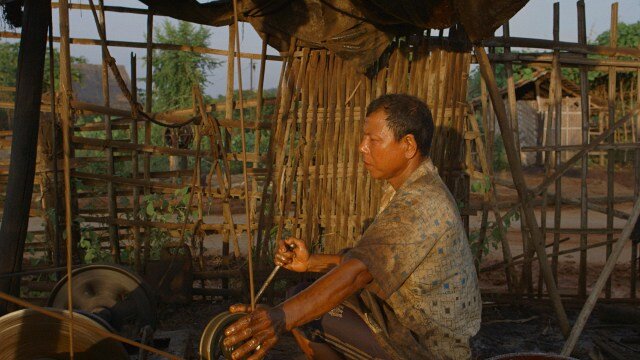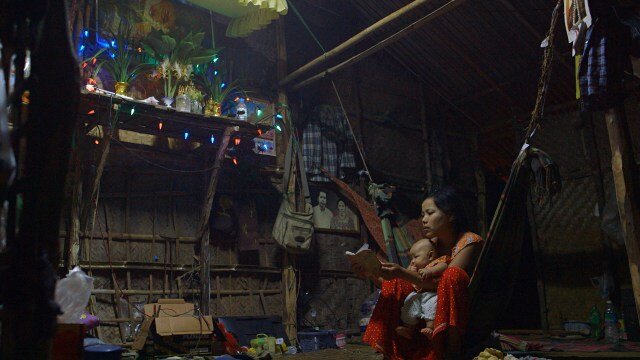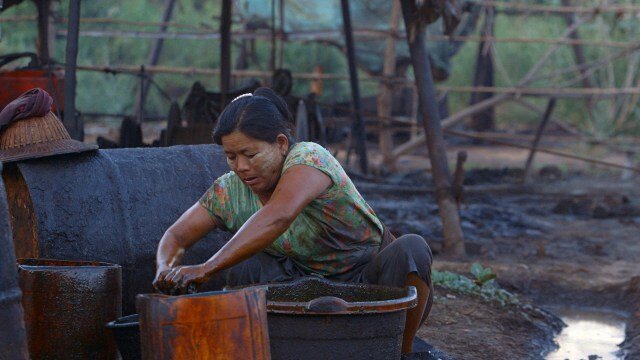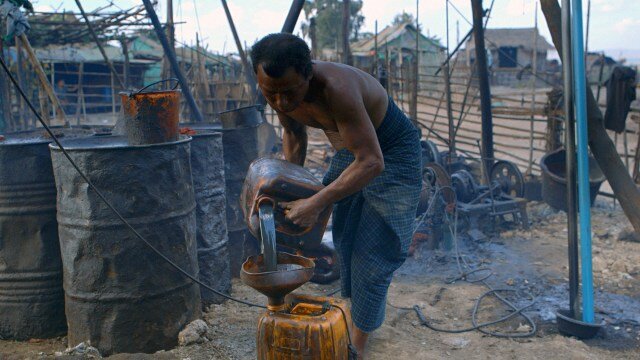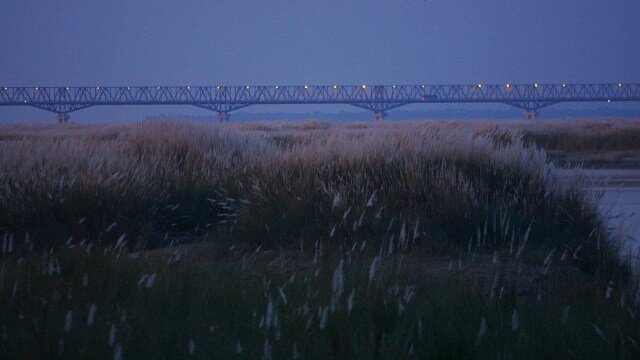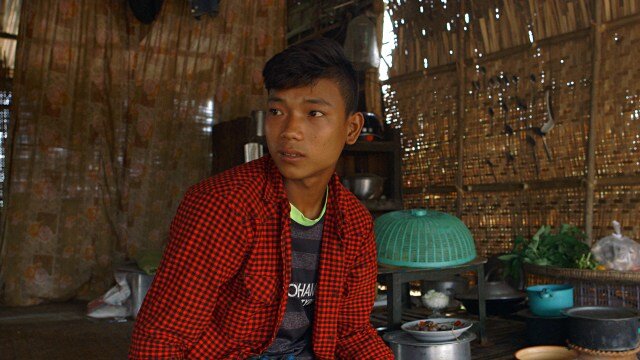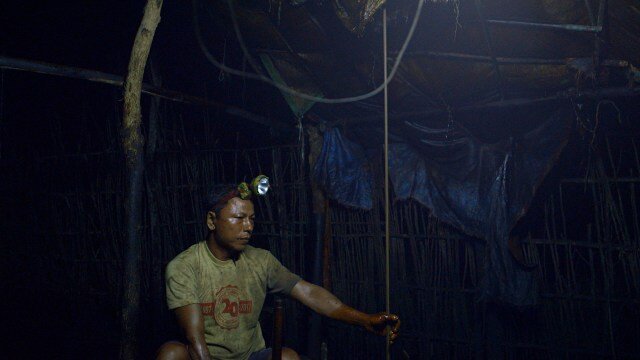A Thousand Fires
Directed by Saeed Taji Farouky, 2021
Sound design.
Premiere: Locarno Semaine de la Critique
In the Magway region of Myanmar, an area home to one of the oldest petroleum industries in the world, husband and wife Thein Shwe and Htwe Tinrun an oil field producing a few barrels a day. They plan to buy their youngest son a motorbike. Mud slicked hands work sputtering machines. The ambient noise of a football match hums from a nearby television.
The new feature documentary from British-Palestinian filmmaker Saeed Taji Farouky, A Thousand Fires catches a glimpse of a family’s private and public life—their community, their aspirations and spirituality, the pace and rhythms of their day to day, their memories of a nation’s turbulent past. A life hard fought for, a stillness earned.
What makes A Thousand Fires stand out is Farouky’s ability to yoke the drama to the substance around which their lives gravitate. Underpinning the film is a Herzogian interest in the way oil drilling works, warts and all; time and again we watch Thein Shwe operate his makeshift derrick, scavenging for crude sixteen meters underground. In Farouky’s hands, the act itself acquires a certain nobility, a sacred beauty that’s amplified by Fatima Dunn’s score and Maxence Ciekawy and James Bulley’s sound design. Watching Thein Shwe pound the ground with his pole, I wondered if what I was looking at wasn’t a man digging, but plugging cables to a beating heart chugging somewhere below the Earth’s surface. Forsaking any vague, abstract statements on “the industry,” A Thousand Fires stays small, focusing instead on the connection between oil and the human body—the tactile, painful efforts to dig up the remnants of millions of years of sedimented histories. It’s a beguiling, epic journey.
